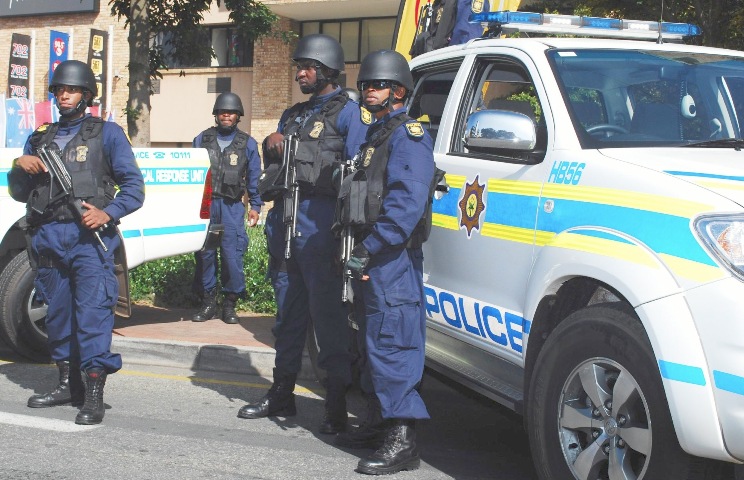Cabinet Endorses SAPS Operations and Welcomes Inquiry into TRC Cases
The government has reiterated the importance of these operations and stressed that they are part of a larger, ongoing commitment to tackling crime and violence head-on.

- Country:
- South Africa
In a recent Cabinet meeting, government officials expressed their strong support for the ongoing operations by the South African Police Service (SAPS) aimed at combatting Gender-Based Violence (GBV) and Femicide. Minister in the Presidency, Khumbudzo Ntshavheni, briefed the media on the latest developments from SAPS operations, underscoring their significant role in ensuring the safety and well-being of all South Africans. These operations led to the arrest of 224 individuals for rape and five for attempted rape between 5 and 11 May 2025.
Ntshavheni detailed some of the notable arrests, which include a SAPS trainer, a traditional leader from KwaZulu-Natal, and a 15-year-old boy from Mpumalanga, all of whom have been accused of rape. These figures serve as a stark reminder of the pervasive nature of GBV across all sectors of society. She also highlighted a broader crackdown on criminal activity, with 148 suspects arrested for attempted murder, 256 for dealing in drugs, and 2,841 individuals arrested for being in possession of illegal substances.
The SAPS operations also led to the recovery of 86 hijacked or stolen vehicles and the seizure of 74 explosives, primarily used in illegal mining and cash-in-transit robberies, all orchestrated by police in North West province. Another significant breakthrough in the past week was the seizure of over 100 illegal firearms in a bid to create safer communities by removing dangerous weapons from circulation.
The government has reiterated the importance of these operations and stressed that they are part of a larger, ongoing commitment to tackling crime and violence head-on. With crime rates affecting numerous communities across South Africa, particularly in the areas of GBV and femicide, the SAPS’ active role in bringing perpetrators to justice is viewed as essential.
Judicial Commission of Inquiry into TRC Cases
In another major development, Cabinet welcomed the establishment of a Judicial Commission of Inquiry into attempts to suppress investigations or prosecutions of apartheid-era crimes, which were originally referred by the Truth and Reconciliation Commission (TRC) to the National Prosecuting Authority (NPA). This Commission aims to determine whether there were deliberate efforts to block the legal actions initiated in the post-apartheid era, preventing justice for the victims of apartheid-era human rights abuses.
The inquiry comes after a legal settlement was reached in a court application brought by the families of victims who sought to uncover the truth behind these historical injustices. President Cyril Ramaphosa, as part of the Cabinet's commitment, affirmed that the Commission would serve as a critical step toward bringing long-awaited justice to the victims of apartheid and providing closure for the families who have endured decades of grief and suffering.
Ntshavheni noted that the President was resolute in ensuring that the facts surrounding these atrocities would be fully explored, with the ultimate goal of finality in these cases. This initiative also aligns with the government's broader efforts to promote national reconciliation and healing.
The Truth and Reconciliation Commission’s Legacy
The Truth and Reconciliation Commission, established by the South African government under the Promotion of National Unity and Reconciliation Act (Act No. 34 of 1995), was designed as a crucial institution in post-apartheid South Africa. The TRC was tasked with investigating the gross human rights violations that occurred during the apartheid regime, including both state-sponsored violence and abuses committed by opposition groups. Its ultimate goal was to facilitate reconciliation among the deeply divided people of South Africa by acknowledging the truth of past atrocities and promoting healing through amnesty, where appropriate.
However, while the TRC provided a platform for many victims and perpetrators to come forward and give testimony, it also faced challenges, particularly around the prosecution of those responsible for severe human rights violations. Many victims and their families have long argued that justice was never fully served, particularly as some perpetrators appeared to escape the legal consequences of their actions.
The establishment of the Judicial Commission of Inquiry, therefore, represents a new chapter in the ongoing pursuit of justice for the victims of apartheid and the broader goal of building a more just and unified South Africa.
A Step Toward Accountability
The introduction of this inquiry signals a renewed commitment by the government to hold those who obstructed justice during the post-apartheid era accountable. This effort is not only seen as crucial for addressing past wrongs but also as an important step toward strengthening the nation’s commitment to human rights and accountability.
As this inquiry progresses, it is expected that the South African public will closely monitor its findings, particularly as it may expose the depth of systemic injustice that lingered even after the formal end of apartheid. The government’s focus on uncovering the truth could serve as a powerful reminder of the country’s journey toward full accountability and the ongoing fight against historical and modern-day injustices.
Both the ongoing SAPS operations and the establishment of the Judicial Commission of Inquiry mark significant milestones in South Africa’s efforts to combat crime, violence, and the lingering legacies of apartheid. The operations aimed at tackling GBV and femicide, along with the inquiry into apartheid-era crimes, are a testament to the country’s continued commitment to building a safer and more just society for all its citizens.
These efforts reflect the broader goals of ensuring national healing and reconciliation while continuing to address the injustices of the past, proving that justice, though delayed, remains a priority in South Africa's journey forward.










